Best Overall Trekking Pole
MSR DynaLock Ascent Carbon
Weight: 17 ounces | Minimum Length: 14 inches
REASONS TO BUY
Comfortable grip
Extremely versatile
Small packed size
Great swing weight
REASONS TO AVOID
Expensive
Heavier than other options
The MSR Dynalock Ascent Carbon poles are comfortable, versatile, compact, and ergonomic. They excel in almost every application. The grip is simple yet elegant, and the length adjustment mechanism is strong and reliable. They have a remarkably light swing weight, feeling ounces lighter than their weight on the scale, and are ideal for backpacking and long-distance thru-hiking. They pack down small and have a light feel that our testers appreciated after hours on the trail.
There are lighter options on the market for the weight-obsessed (like the Black Diamond Distance Carbon Z), and there are more durable options for trekkers to remote corners of the globe. But for 95 percent of users and for those who want one pole to do it all, no matter the season, we recommend the MSR Dynalock Ascent Carbon.
Read more: MSR Dynalock Ascent Carbon review
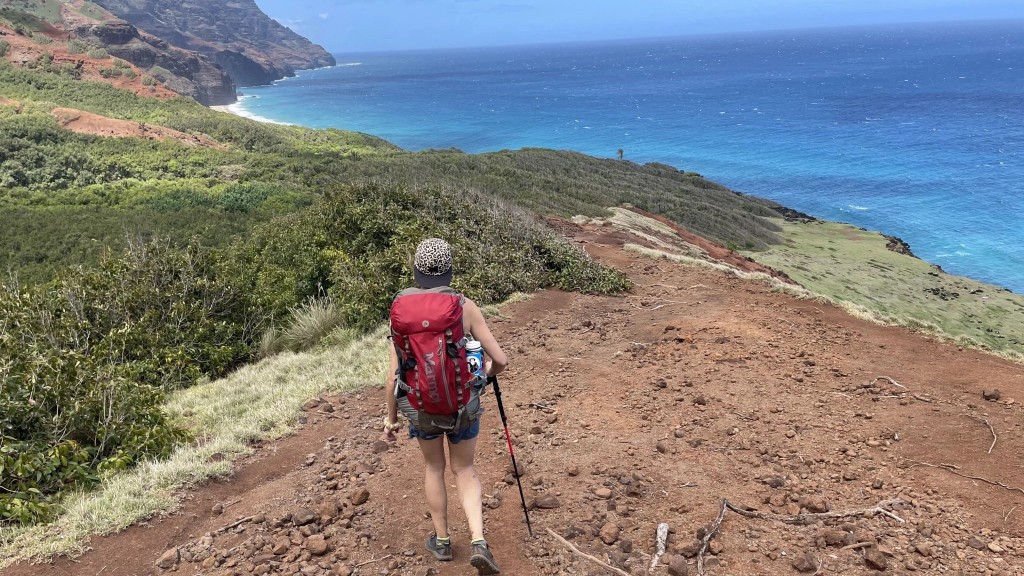
The DynaLock Ascent Carbon is at home on all kinds of trails, rugged and benign.
Credit: Jeff Dobronyi
Best Overall Women’s-Specific Trekking Pole
Leki Cressida FX Carbon
Weight: 17 ounces | Minimum Length: 16 inches
REASONS TO BUY
Ergonomic and comfortable soft cork grips
Very versatile and user-friendly
Premium design and construction
REASONS TO AVOID
Expensive
Average weight
Carbon is less durable than aluminum
The Leki Cressida FX Carbon is a premium foldable trekking pole designed for comfort and versatility. The soft cork grips are comfy from day one and feature an ergonomic notch to accommodate your index finger. This pole has 5.5 inches of grip extension for fast transitions up steep terrain, and the minimalistic straps are among the most comfortable to use barehanded. Our reviewers tend to prefer cork grips because they mold to the shape of your hands and resist moisture from sweat. The Cressida also features carbon fiber shafts, which help dampen trail vibrations. The locking and adjustment mechanisms are expertly designed to be user-friendly — a feature that benefits the novice and seasoned professional alike. Finally, these poles pack down to 16 inches, which stows away nicely in most packs, and they come with a stuff sack for easy storage.
Benefits aside, the Cressida FX Carbon are premium poles, and the price tag reflects this. They are among the most expensive poles in our review. Given that they feature a generous grip extension, they are also not featherweight. Our reviewers never felt hindered by the weight of these poles, but this is something to keep in mind if you are trying to shave grams from your kit. Finally, carbon fiber is less durable than aluminum. The life of carbon poles can be extended by avoiding torsional or downward pressure on the middle of the poles (we recommend against using carbon poles to hang your gear to protect it from marmots and other critters). But truth be told, if you are looking for a premium pair of comfortable trekking poles that can move seamlessly between day hikes, peak bagging, alpine climbing, and mellow winter activities, then these are a fantastic option to consider.
Read more: Leki Cressida FX Carbon review
Why do trekking poles need to be gendered in the first place? Well, they don’t. Women’s specific trekking poles are designed to work for shorter people and/or folks with smaller hands. Men’s poles are designed for taller people or those with bigger hands. You may have larger hands and want the features of a “men’s” trekking pole. If that’s you, don’t feel like you have to buy the trekking poles designed for your gender. Vice-versa, if you are less than 6′ tall, have small hands, but aren’t a woman, don’t sweat the pink accents — “women’s” poles might be a better fit for you.
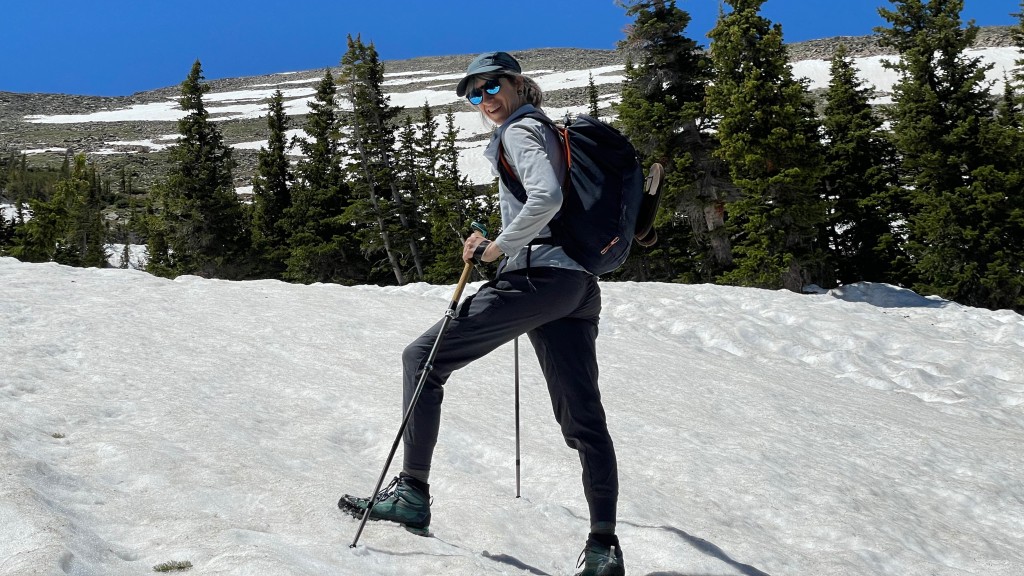
Leki out-did themselves with the Cressida FX Carbon. They deliver premium comfort, excellent features for multiple uses, and their compact packable size makes them easy to stash in your pack when not in use.
Credit: Mary Witlacil
Outstanding Value in a Lightweight Pole
Black Diamond Distance Z
Weight: 12 ounces | Minimum Length: 14 inches
REASONS TO BUY
Light, compact, and durable
Great price
Simple locking mechanism
REASONS TO AVOID
No adjustability
Average grip comfort
The Black Diamond Distance Z are simple, lightweight, and high-performance poles at a lower price than their carbon fiber counterparts. They feature the same design as the Black Diamond Distance Carbon Z, and the aluminum shaft construction adds only two ounces per pair compared to the carbon version. At the same time, they retain the same compact size and minimal yet comfortable grip design as the carbon version. We love both versions of this pole, and since the aluminum-shafted Distance Z costs so much less than the carbon version, they are a great option for those seeking lightweight performance at a reasonable price. Both versions of the pole were upgraded in 2023 with better locking mechanisms that make it easier to use the poles when it is cold. These upgrades were nice, but not so significant you need to upgrade your old poles.
These poles don’t offer any adjustability, so you must be mindful when selecting your size. Other grips on the market are more comfortable. We dislike the thin wrist straps on the Distance Z for hikers or trekkers carrying heavy packs. But these poles are durable, simple, and affordable for the average day hike, mountain run, or casual backpacking trip.
Read more: Black Diamond Distance Z review
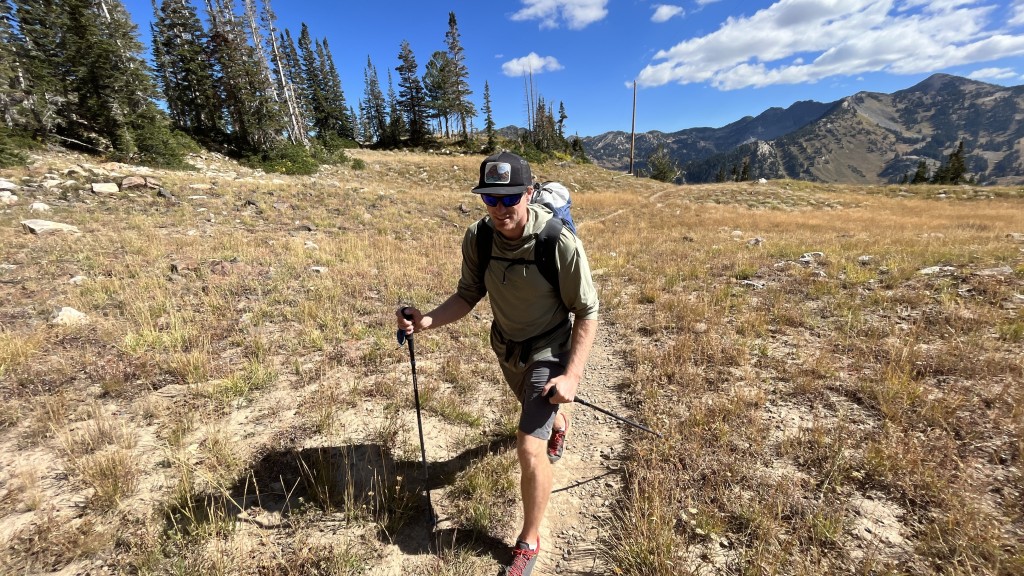
Using the Black Diamond Distance Z while approaching some light alpine scrambling.
Credit: Jeff Dobronyi
Best Bang for Your Buck
Trekology Trek-Z 2.0
Weight: 26 ounces | Minimum Length: 15 inches
REASONS TO BUY
Great value
Highly durable
Comfortable to hold
Packs small
REASONS TO AVOID
Heavy
Not suitable for niche activities
The Trekology Trek-Z 2.0 are foldable three-section poles with some length adjustment for a price that can’t be beaten. In the past, users paid a premium if they wanted compact, high-performance poles. Now, this modern technology is affordable. The grips are comfortable, the basket attachments add versatility, and the poles are durable.
The major downside to these budget poles is their weight. At 26 ounces, they are by far the heaviest pair in our review. They perform poorly in activities like long-distance hiking, where every ounce counts. We also measured only 7 inches of length adjustability, which is less than most other poles on the market. These things aside, the Trek-Z are great if you’re getting into hiking and want high-performance, foldable poles at a great price.
Read more: Trekology Trek-Z 2.0 review
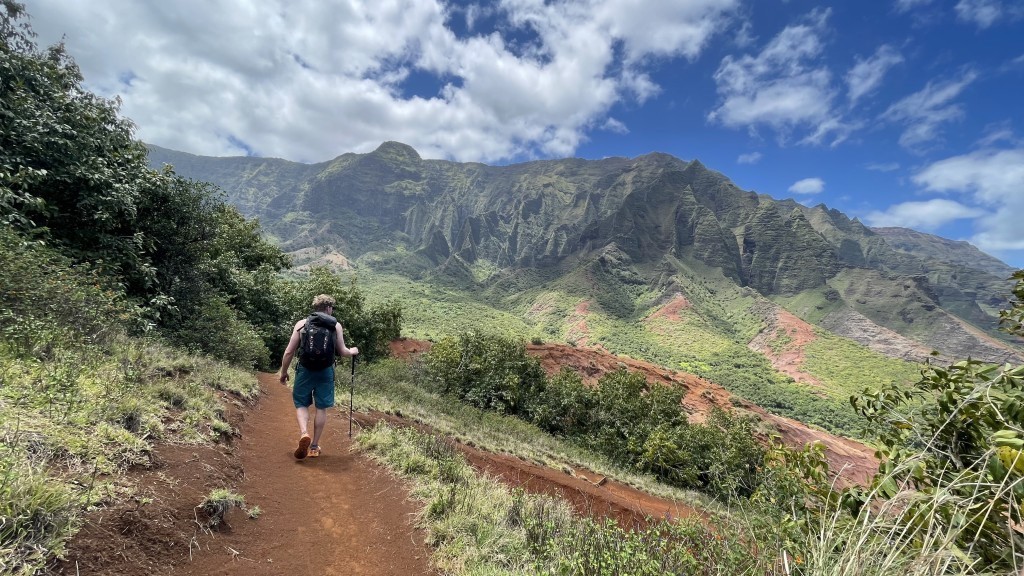
The Trekology Trek-Z 2.0 offers the best performance in an inexpensive pole.
Credit: Sam Willits
Best Lightweight Pole
Black Diamond Distance Carbon Z
Weight: 10 ounces | Minimum Length: 14 inches
REASONS TO BUY
Lightweight
Super compact when broken down
REASONS TO AVOID
Not adjustable
No extra features
The Black Diamond Distance Carbon Z offers great performance at a low weight. We have long been fans of this pole, and it got a minor upgrade in 2023. The newer version uses a thinner pole and is slightly lighter. The smaller diameter pole is noticeable, especially when you attach it to the side of your pack or stash inside your pack. The weight shavings are not really noticeable. The big upgrade is the button to lock and unlock the pole. The old version used a very small button that was hard to use with gloves or when your hands were cold. The new button is much improved. (we are talking grams here; the average person won’t notice. This model shaves ounces by incorporating carbon fiber shafts, foam grips, and stripped-down features. Often, lighter poles can feel cheap or flimsy, but that’s not the case here. Although we don’t use these poles for heavy-duty trekking or backpacking, the Carbon Z is relatively versatile and excels in lightweight backpacking, hiking, trail running, or approaching technical climbs. They come with small snow baskets that work in spring snow but are not ideal for powder.
The Carbon Z isn’t adjustable. Instead, it comes in four lengths, so carefully identify your size before purchasing. Even if you have your perfect length, no adjusting means you can’t optimize the pole length for steep climbs or descents. Furthermore, the grips aren’t the most comfortable, but they’re not bad either. The grips are also smaller in the new version than the old version, which makes it harder to “choke up” on the pole for steep climbs. The sacrifices in comfort and adjustability won’t be a big deal for weight-shaving enthusiasts. We found ourselves reaching these poles for most spring, fall, and summer days. If you want to save money, consider the Black Diamond Distance Z, a few ounces heavier but less expensive.
Read more: Black Diamond Distance Carbon Z review
The Carbon Distance Z is about as light and compact as a trekking pole gets. It’s super fast to break it down and stash it on the side of your pack.
Credit: Chris McNamara
Compare Products
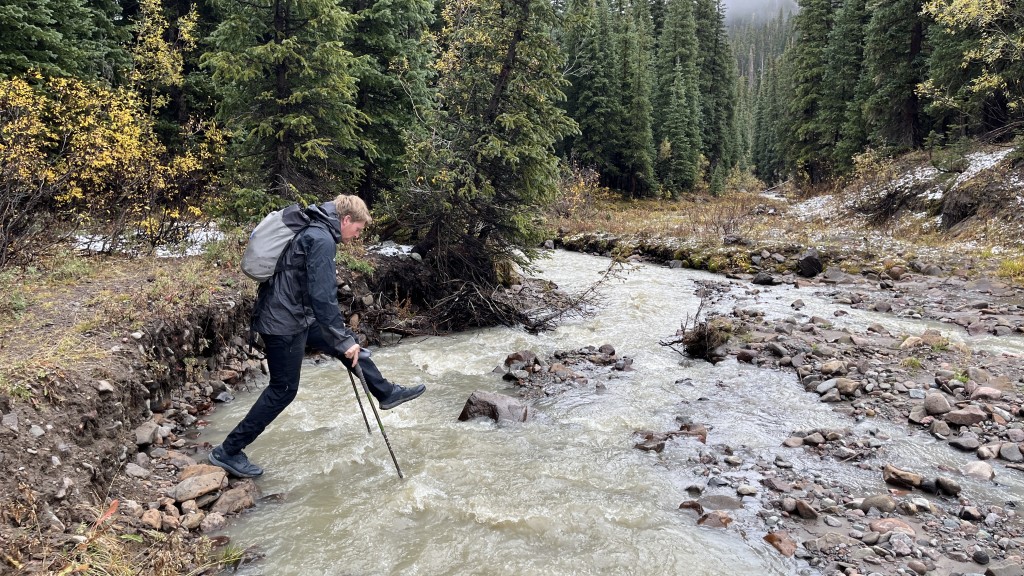
We use trekking poles almost everyday, finding that they make life a lot easier. Here, we used them on a rainy fall hike to cross a swollen creek.
Credit: Jackie Kearney
How We Test Trekking Poles
Since 2012, we have purchased and tested 57 pairs of trekking poles for our objective, side-by-side testing protocol. We start by scouring the market for the top options, seeking out the best new offerings, and listening to our peers and other outdoor enthusiasts for clues about the best products. Then, we select and purchase the best of the best for hands-on testing, where we hike, run, climb, and trek with each pole until we thoroughly understand each. We measure objective metrics like weight, minimum extended length, and adjustability range whenever possible. For subjective metrics like comfort, we get plenty of opinions from our diverse test team and ask friends and peers of all shapes and sizes to weigh in. For the full scoop on our testing process, see our How We Test article.
We divide our testing and scoring of trekking poles into six performance metrics:
- Comfort (20% of overall score weighting)
- Versatility (20% weighting)
- Locking and Adjustability (15% weighting)
- Packed Size (15% weighting)
- Construction Quality (10% weighting)
Why Trust GearLab
Our test team is led by mountain guide, climber, hiker, and skier Jeff Dobronyi and avid alpine climber, hiker, and backpacker Mary Witlacil. Jeff is an internationally-certified Mountain Guide and leads climbers, trekkers, and backcountry skiers all over the world, from his home in Colorado to the Tetons, Wind River Range, Washington’s Cascades, and beyond. He has also guided four expeditions on Denali. In the Rocky Mountains, where approaches and hikes are marked by climbing up and down thousands of feet over rocky terrain, trekking poles are a must. Jeff goes through multiple pairs each year and seems to have poles in his hands every day, whether he’s out for an alpine climb, an overnight hike, or a training run.
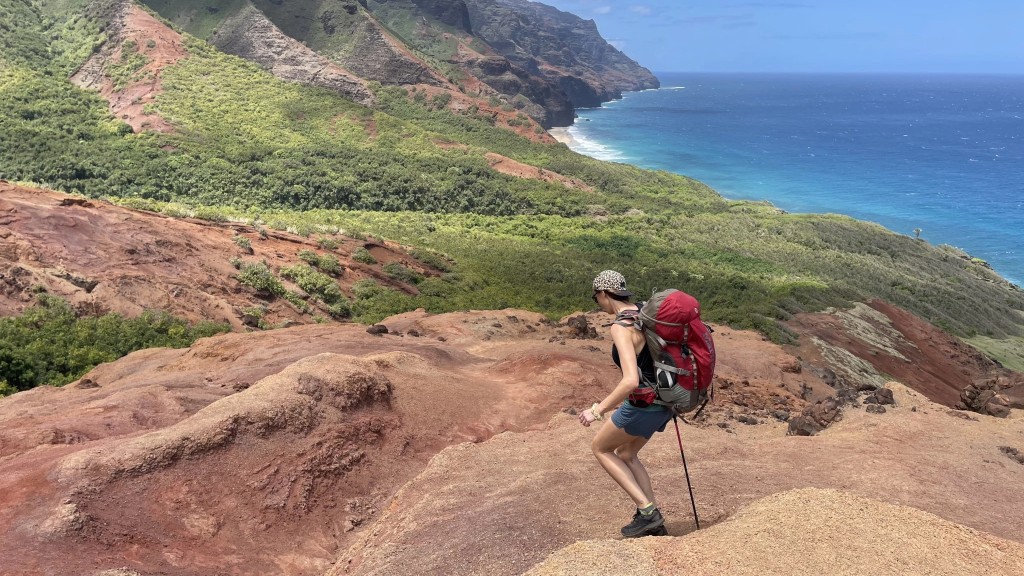
Using the MSR Dynalock on a slippery descent in Hawaii.
Credit: Jeff Dobronyi
Mary has logged thousands of miles carrying heavy loads all over the Rocky Mountains, the Sierra Nevada, and the deserts of Utah, Arizona, and California. From multi-day expeditions in the Andes, the Wind Rivers, the Rocky Mountains, and the Sierra to humping heavy loads of climbing gear into the backcountry, this gal is a veritable pack mule. While alpine climbing is her first love, Mary logs tons of miles with trekking poles while day-hiking, peak-bagging, backpacking, and romping around in the backcountry. For this round of testing, she spent the majority of her time testing poles in the sandy red rock deserts of the Colorado Plateau in Utah, alpine climbing day-trips, and hiking in the mountains and foothills in Colorado.


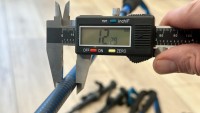
How To Choose Trekking Poles
Analysis and Test Results
We break down the performance of each trekking pole into specific performance categories to help you find a pair that meets your needs. You’ll find detailed descriptions of each metric and the top scorers in each of them.
Value
Trekking poles span a wide range of prices, and we find that, in general, you get what you pay for. That said, poles aren’t as complex as other pieces of equipment, and the least expensive ones will often provide nearly the same level of performance as the most expensive ones. Only the most dedicated trail users will appreciate the comfort, weight, and design benefits of the most expensive poles. If you are an occasional trail hiker or go on regular walks to stay fit, any poles in this review will get the job done. If you have a specialized use in mind, prepare to pay a little bit more.
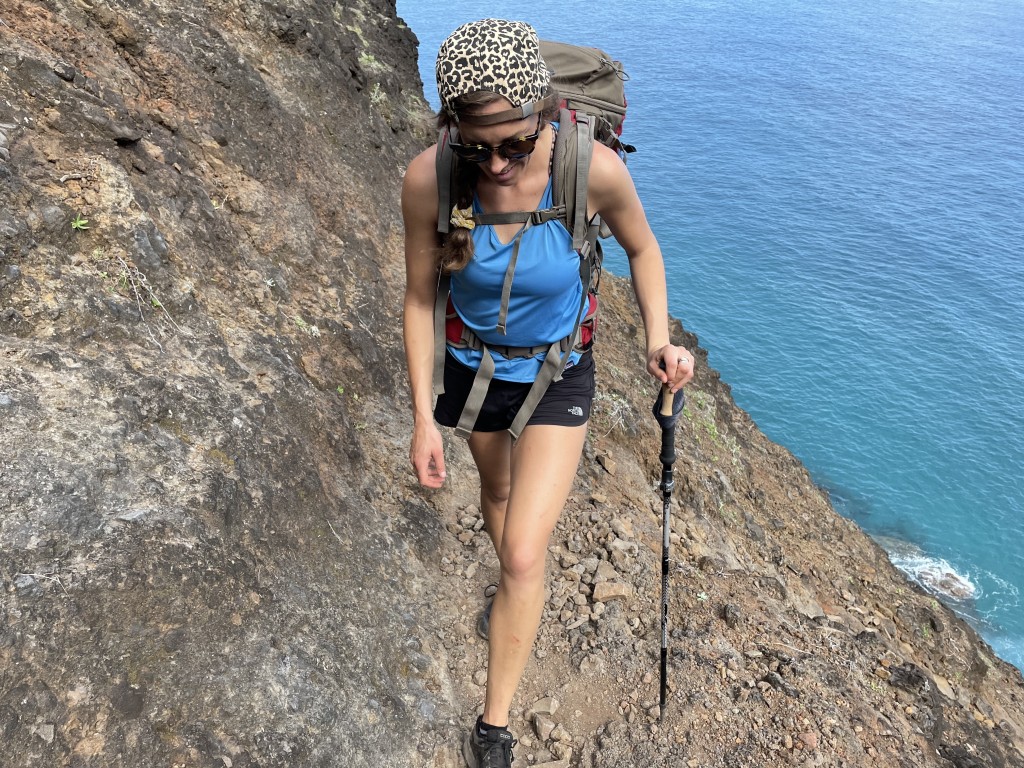
The Trekology Trek-Z is a good choice for rugged trails and budget-minded hikers.
Credit: Jeff Dobronyi
Poles range dramatically in price, and luckily, there are some great options that won’t break the bank. The Trekology Trek-Z 2.0 provides many of the features of more expensive poles at a fraction of the price. These features include comfortable foam grips, a foldable design that allows the poles to pack small, a durable aluminum construction, and plenty of tip and basket attachments. The Cascade Mountain Tech Carbon Fiber Quick Lock are also a great deal. They are made from carbon fiber, so they are incredibly lightweight, and they come equipped with plenty of attachments in a telescoping design. The Leki Lhasa AS strikes a good balance between affordability, durability, and user-friendly design features. The REI Co-op Traverse features exceptional durability at an affordable price, and the TrailBuddy Gear Aluminum Cork are also notable for their affordability — though we don’t recommend them because of durability issues.

Out for hike with the Leki Lhasa AS.
Credit: Mary Witlacil
In the lightweight category, the Black Diamond Distance Z weighs a tad more than folding carbon fiber poles and is much more affordable, allowing users on a budget to access the ultra-lightweight trekking pole market.
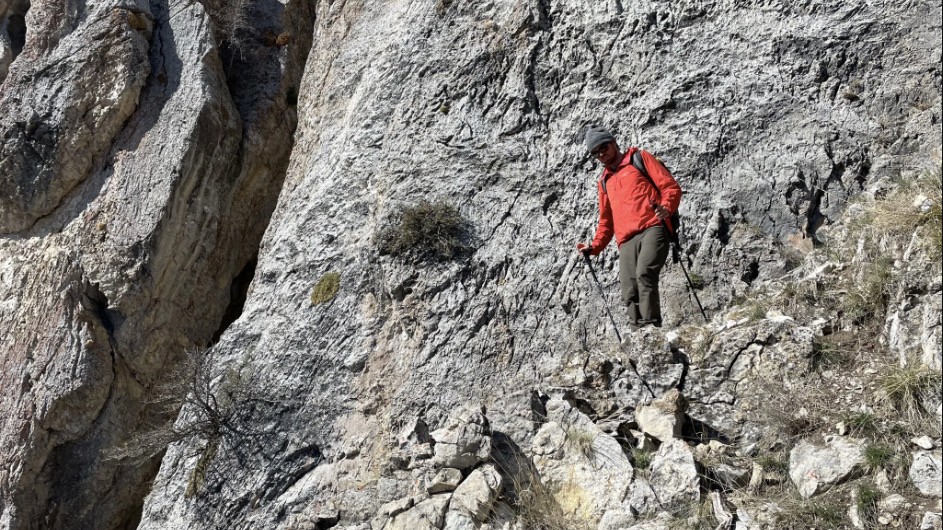
The Trekology Trek-Z 2.0 is a great choice for everyday hiking and walking at an affordable price.
Credit: Jeff Dobronyi
Comfort
Trekking poles transfer some of your body weight from your legs to your arms. However, after hours or days of walking, the hands and wrists can take a beating from supporting this additional weight. To combat this fatigue, poles often incorporate comfortable grip and strap materials, as well as ergonomically shaped handles. In our experience, grip shape, or how well the handle is contoured to a real hand, makes the most impact on comfort. Other features that can increase comfort are an extended “secondary” grip for choking down on the pole in steep terrain, a thick and soft wrist strap, and carbon fiber shafts that absorb shock when the pole hits the ground. Grips are typically made of some combination of cork, foam, rubber, or plastic. Cork grips deliver some of the best comfort, but not all cork grips are created equal. Softer cork breaks in faster and delivers better out-of-the-box comfort, while harder cork might be more durable, but it takes longer to break in.
The Black Diamond Alpine Carbon Cork is our favorite grip because it is perfectly contoured to fit our hands, and the cork also molds over time. We also are big fans of the understated contouring on the MSR Dynalock, which fit our testers’ hands well. The Leki Cressida FX Carbon features some of the most comfortable, ergonomic, and soft cork grips of the poles in our review. Among the lightweight designs, the Black Diamond Distance Carbon Z and Distance Z have a simple foam grip that is comfortable enough for long distances.
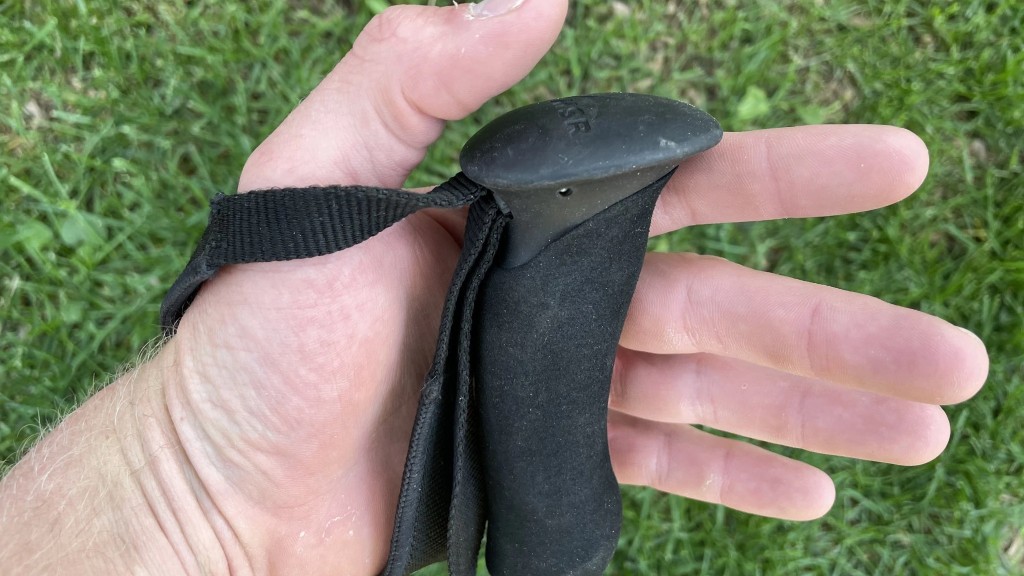
The MSR Dynalock’s grip features subtle contours that are very comfortable for every hand size.
Credit: Jeff Dobronyi
Poles made from carbon can absorb more shock from impact with the ground than poles made from aluminum, and this distinction is noticeable when using trekking poles on firm bedrock surfaces like the sandstone slabs in the desert and high alpine granite basins. If you’ll be using your poles primarily on dirt trails, then the shaft material won’t matter much for comfort, but if you are in rocky environs, carbon poles with thick shafts are the most comfortable. The BD Alpine Carbon Cork, Leki Cressida Carbon, and Leki Black Series FX Carbon had the best shock-absorbing performance in our testing but are relatively heavy due to the thickness of the carbon shafts. In this case, increasing comfort means increasing weight.
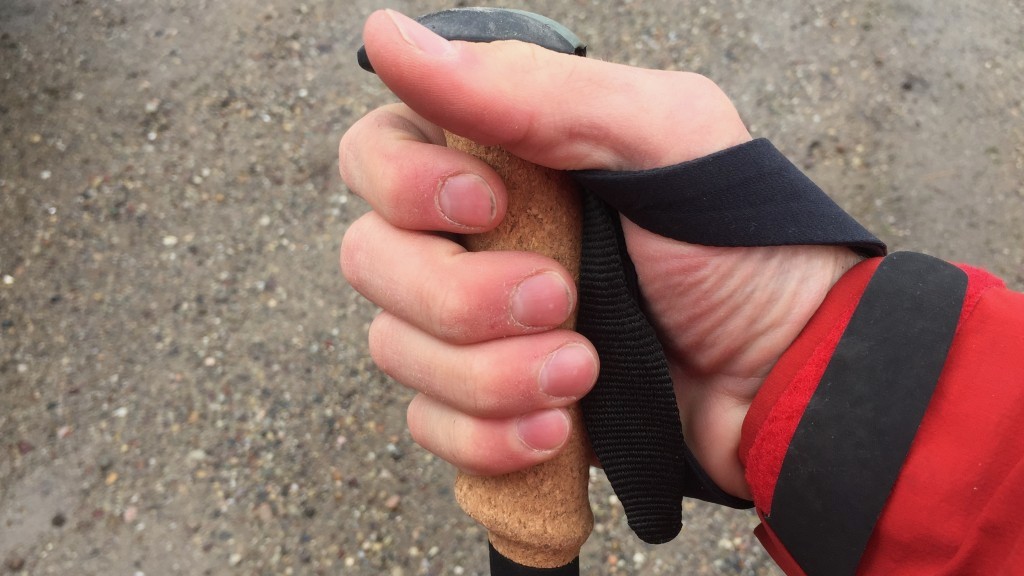
The BD Alpine Carbon Cork grips are excellent and contour to the user’s hand over time.
Credit: Jeff Dobronyi
Given that aluminum is a less forgiving material, some manufacturers use simple shock absorbers to make up for the harsher feel of aluminum trekking poles. While the anti-shock system of the Leki Lhasa AS was somewhat stiff, this might be a good option for dampening trail vibrations without the steeper price tag of the well-crafted carbon poles in our review.
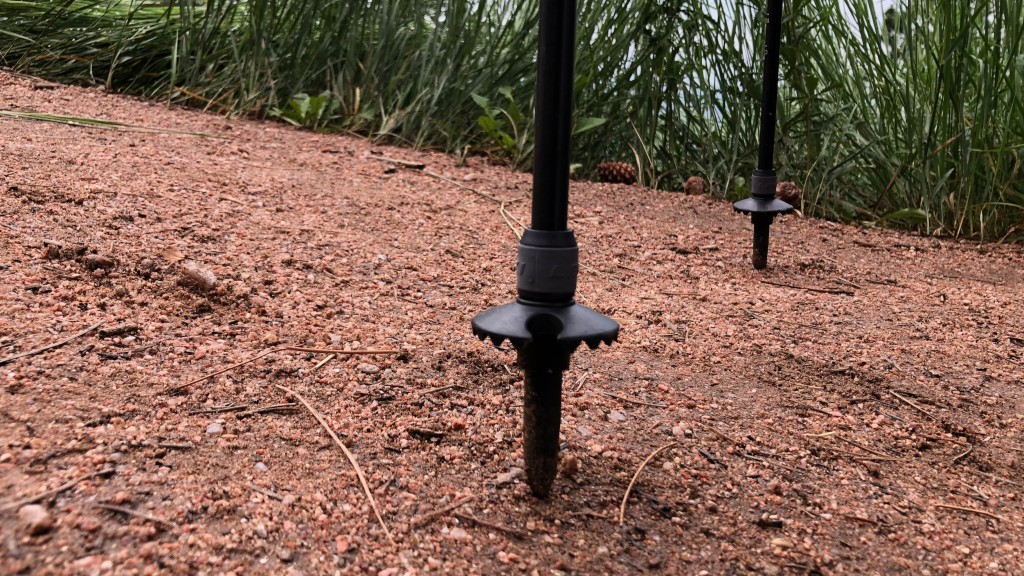
The “AS” stands for “Anti-Shock System,” which refers to the small shock-absorbers just above the mud baskets on the Lhasa.
Credit: Mary Witlacil
Weight
As mountain running and ultralight backpacking become more popular, weight is an increasingly important component of a trekking pole. Most of the time, lighter poles are less durable. But if you’re only using them during runs, day hikes, or short overnight trips, durability isn’t a major concern, and a lighter pole is noticeably more pleasant to use than a heavier one. Weight is less critical if you need a pole to support heavy loads in remote areas and one that absolutely must not break.
At 10.2 ounces per pair, the Black Diamond Distance Carbon Z are among the lightest in our lineup. To achieve such a low weight, these poles have a streamlined foam grip, minimalist wrist strap, and, most notably, ZERO length adjustment. Fixed-length poles save tons of weight by eliminating lever locks and overlapping shaft sections. No need to fear, though: this pole still has the ability to collapse into sections for stowing in a small backpack. At 12 ounces, the aluminum Distance Z is only slightly heavier than the lightest carbon option, but it costs much less. Both poles are available in many length options, making them suitable for both men and women.
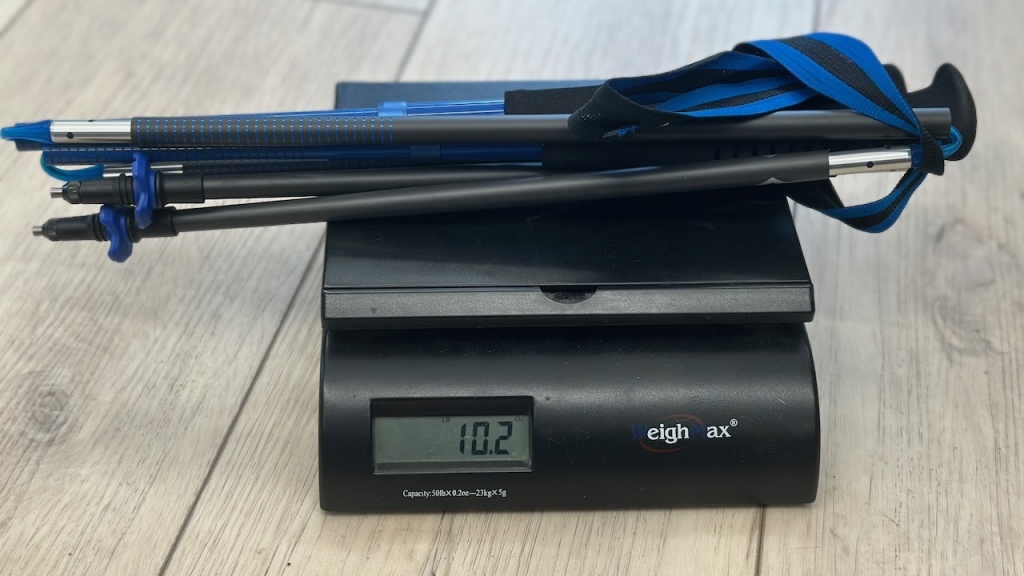
The Carbon Distance Z is about as light as it gets.
Credit: Chris McNamara
The Gossamer Gear LT5 are the lightest poles in our test, thanks to carbon shafts, lightweight plastic twist-lock length adjustment mechanisms, and foam grips. These poles lack durability, but they have a very light swing weight, making them great for users with wrist injuries or chronic wrist pain. They aren’t suited to backcountry use, but they are great for low-impact hikes and walks.
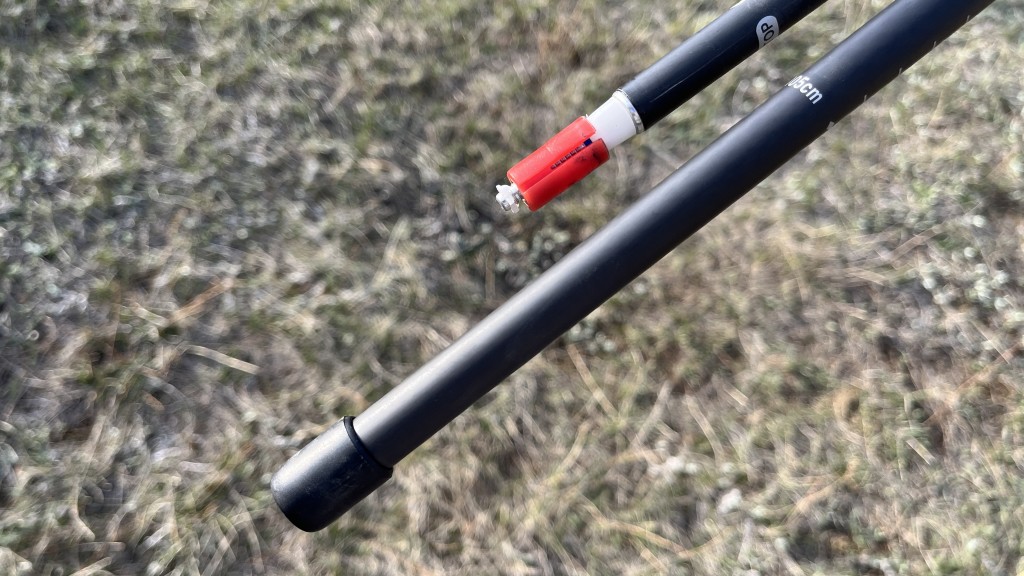
The Gossamer Gear LT5 achieves a low weight thanks to thin carbon shafts and plastic locking devices that expand when twisted.
Credit: Jeff Dobronyi
Versatility
Some products in our review are purpose-built for specific activities, while others may be used for most or all backcountry activities. Some poles include various baskets and tips to adapt to trail or off-trail conditions. Most users don’t need a pole that performs on loose talus approaches or on long treks through burly or unchartered terrain. That said, some poles in our review can do all of it with ease.
For instance, the MSR Dynalock is versatile enough to be used in any situation you might need a pole, from day hiking and long backpacking trips to technical climbs and backcountry ski tours. Most folding poles are weaker than their telescoping counterparts and thus can’t be recommended for rugged terrain while carrying a heavy backpack, but the Dynalock does it all. Another top contender in versatility is the Cressida FX Carbon, which is light enough for alpine running and peak bagging, compact enough to use for alpine climbing (when you need to stow your pack away during climbs), comfortable enough for backpacking, and burly enough for most winter activities. The Leki Black Series FX Carbon also earns high marks in the versatility category for its small collapsed length, relatively low weight, and comfortable grip for long treks.
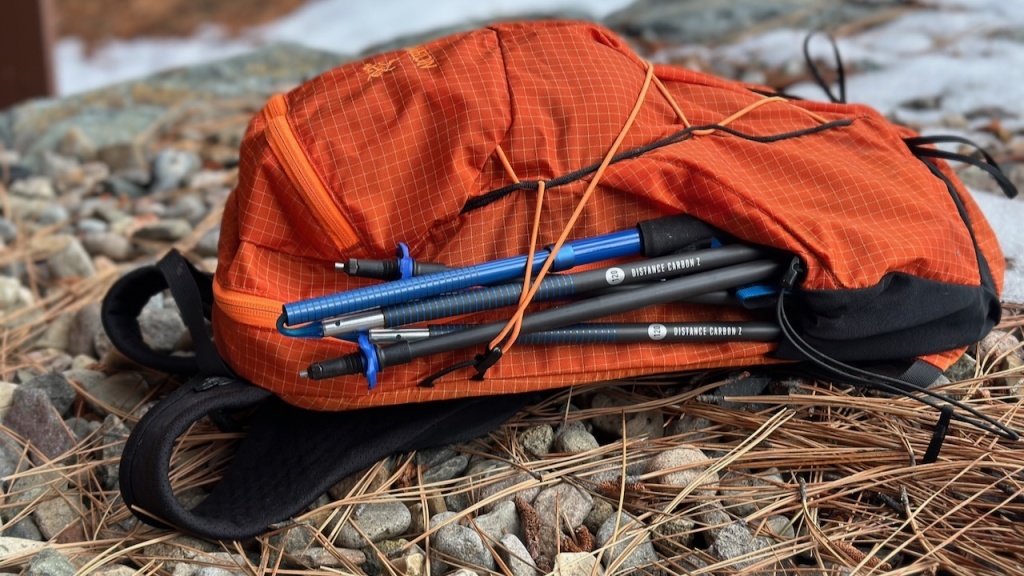
Compact collapsible poles like the BD Carbon Distance Z quickly fold away and can be stashed inside your pack or on the side. Most other pole designs are more clunky to store.
Credit: Chris McNamara
The lightweight poles in our review are great for mountain running, ultralight backpacking, technical climbing, day hikes, and on-trail backpacking with heavier packs. This includes the Carbon Z, Carbon FLZ, and Distance Z. The only activities we wouldn’t use them for are international trekking and off-trail travel with heavy loads. They also accept snow baskets for glacier travel or high alpine traverses in the early summer.
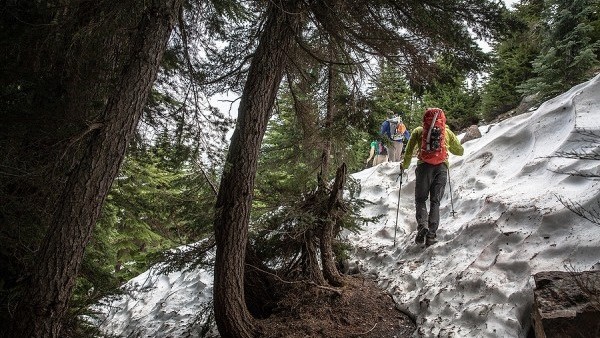
Slightly wider baskets are useful for traveling across snow because they prevent your pole from plunging too deeply. Some pole come with snow baskets, some are sold separately, and others are not compatible at all.
Credit: Jeff Dobronyi
Other poles come with many baskets and tip attachments to help them perform well across the board. We especially like the non-marking rubber tips that attach to the Distance Z, Distance FLZ, Distance Carbon Z, Distance Carbon FLZ, Gossamer Gear LT5, and Trailbuddy poles. If you spend time hiking on the sandstone of the American Southwest or anywhere else with soft rock and a fragile, aesthetic ecosystem, we recommend rubber tips because they won’t scratch and permanently alter the appearance of the rock.

An assortment of baskets, from super lightweight and small on the Black Diamond Distance Carbon Z (left), to the super wide powder baskets on the Black Diamond Alpine Carbon Cork (right).
Credit: Jeff Dobronyi
Locking and Adjustability
All of the poles in our test break down to a smaller length for storage, travel, and stowing in a pack, then extend back to a usable length when needed. Most of the poles in our review also feature an adjustable length mechanism for minor adjustments during use. This metric rewards poles that have a large range of length adjustment and that securely lock into the chosen length. We also consider how easily adjustments can be made to wrist strap lengths and locking mechanism tightness.
Trekking poles with the most length adjustment feature a telescoping design where different sections of pole shafts slide inside each other to collapse or extend to the desired length. A small lever lock fastener clamps the outer shaft material down tight over the inner shaft, creating enough friction to secure everything in place. We are big fans of the metal lever locks on the Alpine Carbon Cork, finding them to be the best locks in our review. The durable aluminum lever locks on the REI Traverse can take a beating while still doing their job, and they are easy to tighten in the field without a tool.
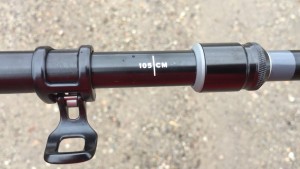
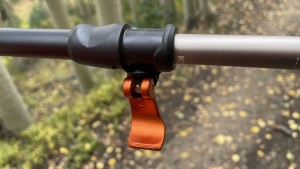
On the other hand, folding poles offer less (and sometimes zero) adjustability and feature a completely different locking mechanism. Each pole section fits together with the next, and an internal pull cord tightens the links together. When pulled tight enough, the cord engages a spring-loaded locking mechanism that prevents the sections from coming apart. Although this pole style can fold down to a smaller packed size than telescoping models, they generally don’t include as much length adjustment.
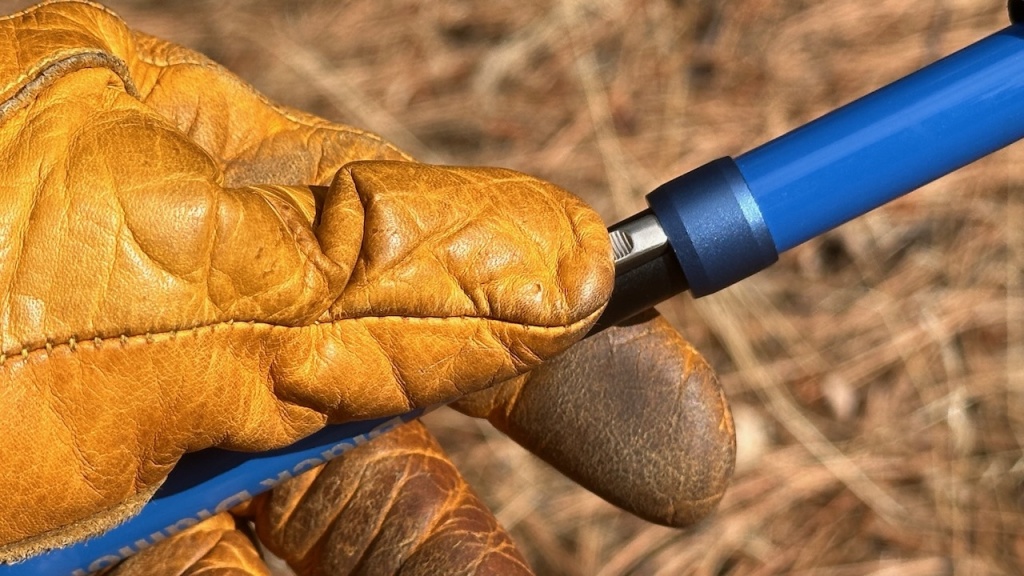
The Distance Z poles have a great button that makes the pole quick to break down. However, there is no adjustability; you have to choose the right length for yourself and can’t easily share it with people who are a different height than you.
Credit: Chris McNamara
Poles like the Distance Z save weight by avoiding any adjustment mechanisms, but they are not ideal if you are between sizes or want to lend your poles to a friend. If you want a packable pole that offers different lengths, consider poles like the Cressida FX Carbon, Black Diamond Distance Carbon FLZ, or Leki Black Series FX Carbon, all of which feature a single lever lock and a foldable, Z-style design. This allows modest length adjustments once the pole is unfolded.
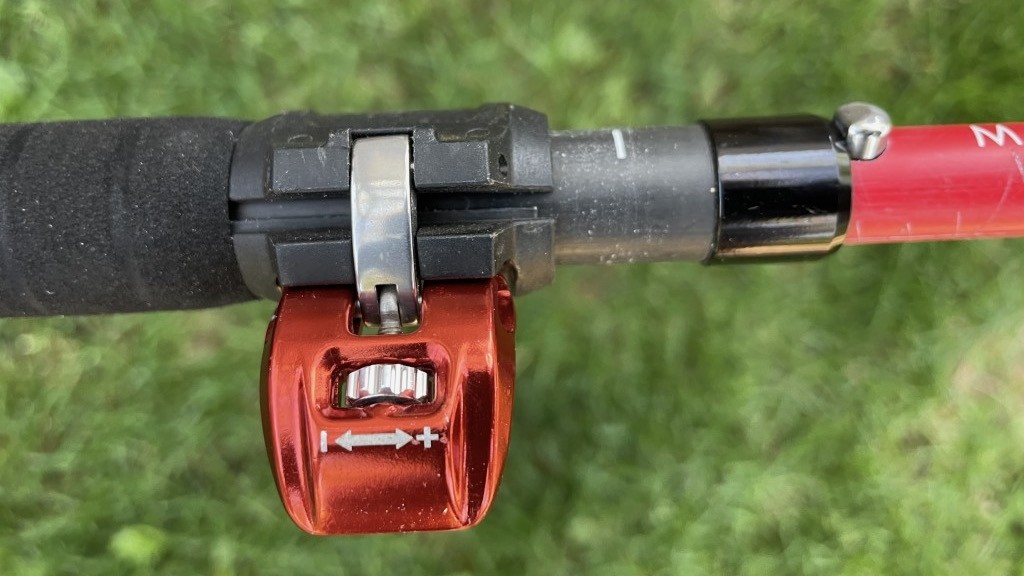
The locking mechanism and length-adjusting lever on the MSR Dynalock are both sleek and effective.
Credit: Jeff Dobronyi
Packed Size
If you plan on using your poles in your hands for your entire trip, then packed size might not matter. On the other hand, if you’ll be using your poles on scrambles, you’ll have to stash them in your backpack during technical sections. Additionally, if you’ll be traveling and need poles that can fit into your luggage, packed size is an important consideration.
The most packable poles on the market today are those featuring a foldable design, also known as Z-poles. In the past few years, these poles have exploded onto the market, and with good reason. This design packs down to almost half the length of standard telescoping poles. Black Diamond revolutionized and popularized the Z-pole, and now many brands have their own version of the design. The Black Diamond Distance Z, Distance Carbon Z, and Distance Carbon FLZ all pack down to as little as 13 inches, depending on the size purchased. Both the top-ranked MSR Dynalock Ascent Carbon and Leki Cressida FX Carbon, as well as the budget-friendly Trekology Trek-Z 2.0, also feature a foldable design. The Leki Black Series FX Carbon is a foldable option that packs down to 15.5 inches. Foldable poles are the best option if you need your poles to fold up and disappear inside your pack.
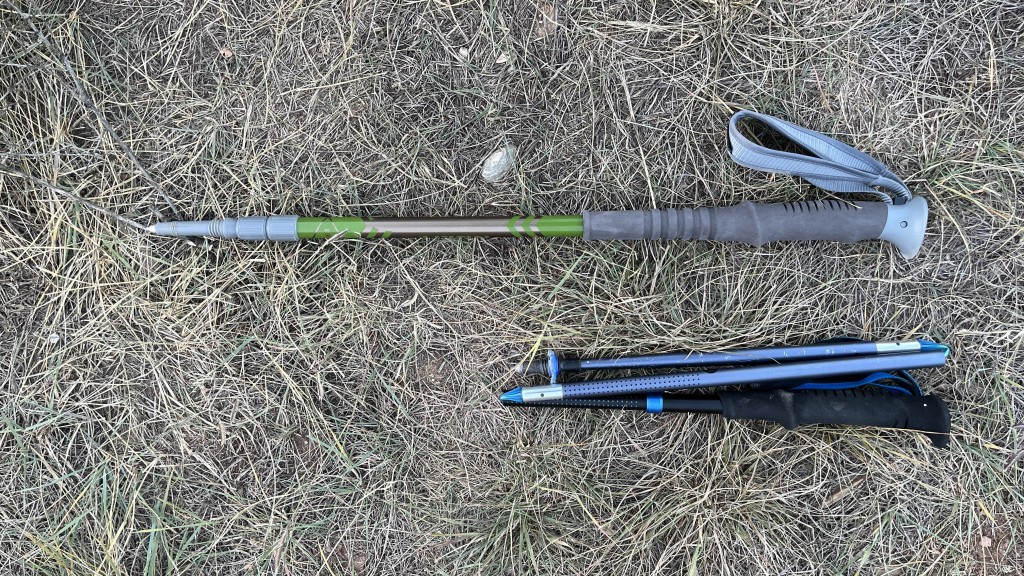
Foldable poles, like the Black Diamond Distance Z, pack much smaller than three-section telescoping poles.
Credit: Jeff Dobronyi
Most telescoping poles only collapse down to 24 inches, making them much harder to fit inside a backpack. With recent developments in the durability of lightweight folding poles, we recommend z-poles for technical missions or for users who want the option to store their poles on the outside or inside of a backpack.
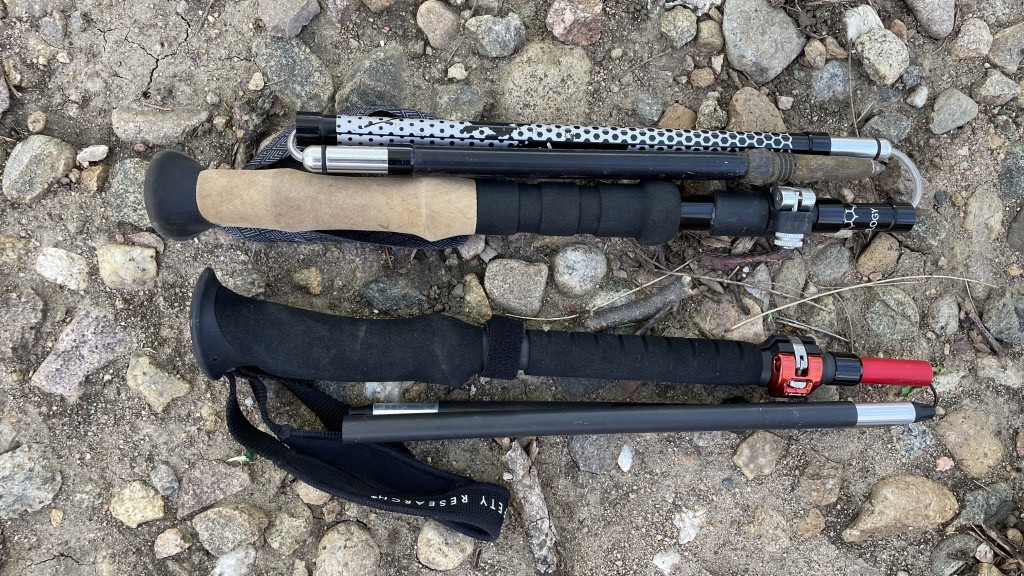
The Dynalock packs down smaller than other foldable poles on the market, making it a useful tool for pack size-conscious missions.
Credit: Jeff Dobronyi
Construction Quality
Trekking poles are worthless if they break, leading to less efficient travel. If you are carrying a heavy load across streams or through rough terrain, a broken pole could also be a serious safety concern. Furthermore, if your shelter system incorporates your poles into the design, as some modern lightweight backpacking tents do, then a broken pole might be a major inconvenience. After our extensive testing period, we have a good idea of which poles are the most trustworthy.
Carbon fiber poles can break when bent or smacked against rocks but are strong when loaded properly along the axis of the pole (from the top down). Aluminum poles can bend when loaded heavily, even along the main axis of the pole, but aluminum usually bends much more than carbon before snapping. Chipped carbon is more prone to snapping, even when loaded along the major axis. We were most impressed by the durability of the Alpine Carbon Cork. This pole has thick carbon shafts that don’t bend at all when weighted and are thick enough to absorb some chips without compromising the pole’s integrity. They also feature burly metal lever locks that inspire confidence and perform well.
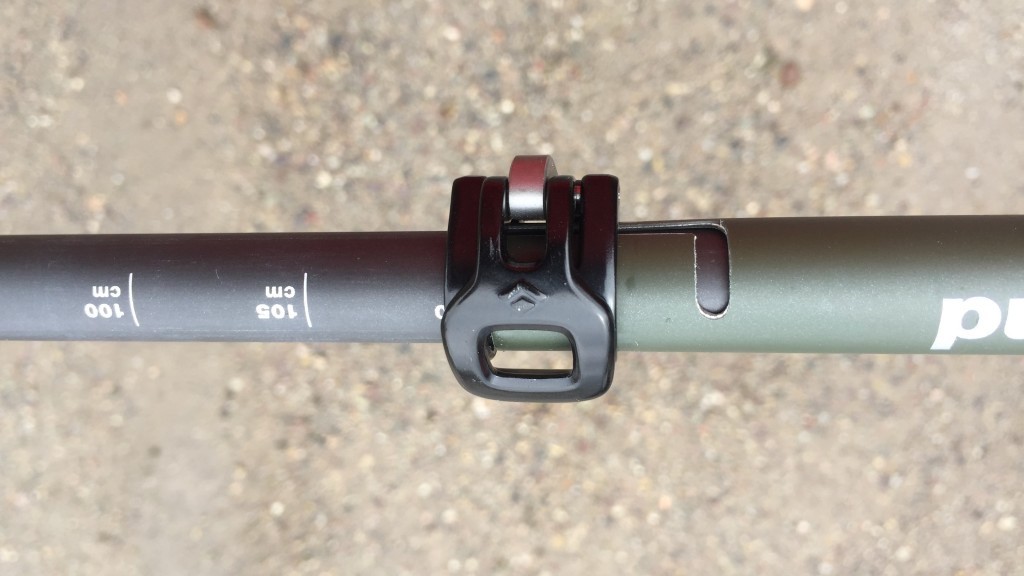
The impressively durable Alpine Carbon Cork.
Credit: Jeff Dobronyi
Despite the Black Diamond Distance Z‘s ultralight design, it’s actually quite robust and durable. It is made from aluminum and doesn’t include many parts that can break. If you are looking for a pair of well-built carbon-fiber poles, the BD Alpine Carbon Cork is a good option owing to their thick carbon shafts.
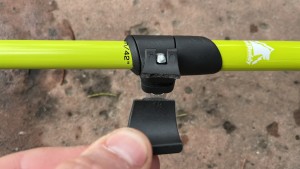
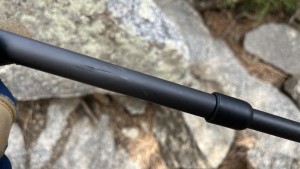
The Trailbuddy Gear Aluminum Cork (left) and Gossamer Gear LT5 (right) both broke with light use during our testing period.
Poles don’t typically withstand that much of a beating, but some poles were downright disappointing and broke quickly during our testing period. We broke the plastic lever on the Trailbuddy locking mechanism right out of the box, making the poles nearly unusable. We also broke the Gossamer Gear LT5 on our third day of testing when a user tightened the twist-locking shafts a little too much, and the plastic expansion piece inside the pole broke through the carbon shaft. We would recommend avoiding these two choices if you want a pole that will last a long time.
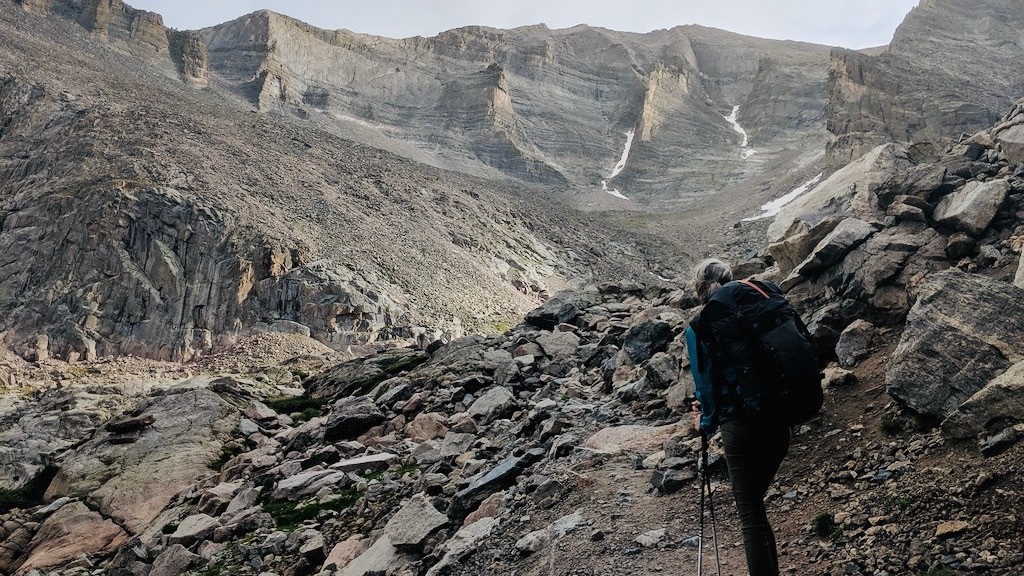
Mary pausing to check out the Ship’s Prow in Rocky Mountain National Park. Trekking poles are a great trail companion when carrying heavy climbing gear into the high country.
Credit: Fernando Urias-Cordero
Conclusion
There are so many trekking poles on the market that finding the perfect pair is daunting. The good news is that for most day hikers, any trekking pole will get the job done. If you need poles for a more specialized use, you’ll have to do a little more research, which is where this review comes in. We hope our work helps you find the best pole to suit your needs. See you on the trails!

